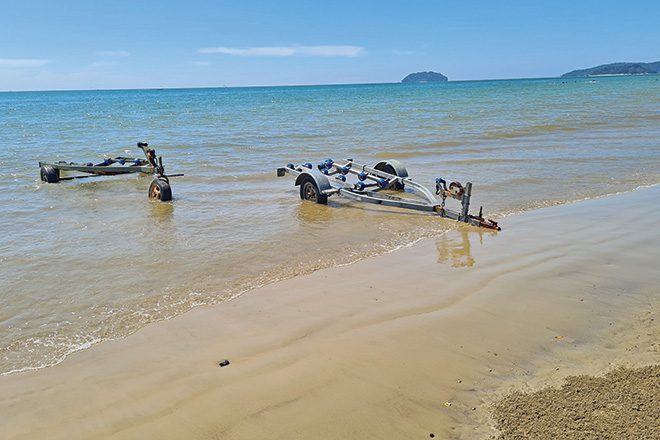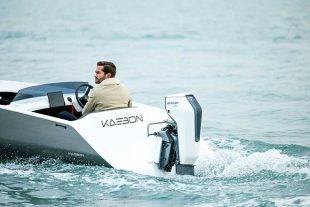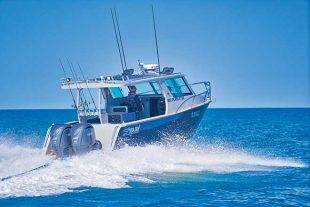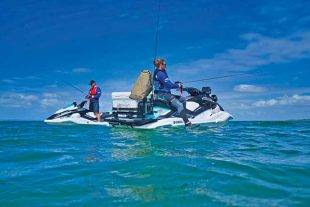The least complicated piece of your boating equipment is also the one most likely to cause you the most problems and frustration. trailer
And that’s the trailer.
To a large extent hidden under a boat hull for most of its life, plunged into cold water when its brakes, bearings and tyres are hot, left all day to bake in the sun after being immersed in a known corrosive environment – and that includes the electrical system – perhaps a cursory rinse off once back home but never chamoised dry, loaded to the max and hammered over ruts, potholes and possibly dirt roads… life sure isn’t easy for a boat trailer.
They’re also expensive, which is why it makes sense to insure them.
But when it comes to insuring your boat trailer, there are a few key points to be mindful of.
The first is that the trailer you buy for your boat needs to be appropriate for the job it has to do.
If it’s not, you won’t get insurance for your rig.
There is a myriad of design rules and regulations relating to the:
- Aggregate trailer mass, or ATM
- Gross trailer mass, or GTM
- Gross combination mass, or GCM
- Maximum axle load, or MAL
- Load on the trailer ball
- Payload of the trailer.
And that’s before you consider whether you want a skid trailer, a bunk trailer, a multi-roller trailer, one made from galvanised steel or aluminium, whether the frame is to be box-section, C-section or I-beam, what the suspension springs are made from as well as the materials in the braking system.
The key point is that, if you get any of these figures wrong when slipping a trailer under your boat, you could be jeopardising the safety net of your insurance cover.
That’s why it is important to get professional advice from a qualified person.
Ordinarily, a reputable franchised boat dealer will be able to advise you on the trailer recommendations for the boat you purchase from them.
The trailer might even come from the boat manufacturer itself.
Likewise, you can seek professional independent certification of a trailer you are considering purchasing.
But when your handyman neighbour down the road reckons he can knock you up a new boat trailer and save you a fortune, keep an ear out for the warning bells to start going off.
Savings now may well be a loss later.
The Australian Competition and Consumer Commission – which is the public face of Australian Consumer Law – notes that under consumer guarantees, a product must be reasonably fit for the purpose specified by the customer and agreed by the seller.
If the product proves to be not fit for purpose, then the consumer can seek a remedy.
Downstream from that is when you come to insure the trailer.
If that trailer is not suitable for carrying your boat, then don’t expect an insurance payout when it causes significant damage to your boat.
Likewise, trailer repairs.
If you need to replace a crossmember, a section of the frame or any other component on your trailer, ensure that the work is done by a qualified tradesperson with expertise on trailers.
That way your trailer’s insurance cover can continue.
It’s always a good idea to inform your insurer of any such repairs and to provide progress photos of the work undertaken.
As noted at the outset, trailers will degrade over their lifespan – be it short or long.
That deterioration is part of life – it does not qualify as ‘damage’ in the context of being covered by insurance.
Leaving your boat trailer in a place where the tide can wash over it sounds like a stupid idea, but people do it… as depicted in the photo.
Your trailer rusts – no, you can’t claim for the repair of that rust.
It is not accidental damage.
As always, what is and what may not be covered will always be decided in accord with the terms of insurance as defined in your insurance policy’s Product Disclosure Statement.
That’s why it is so important to read it thoroughly and to note any special conditions and excesses which should be explained clearly in your PDS.
If you need further information, you can contact Nautilus Marine Insurance on 1300 780 533 for any boat insurance requirements.








